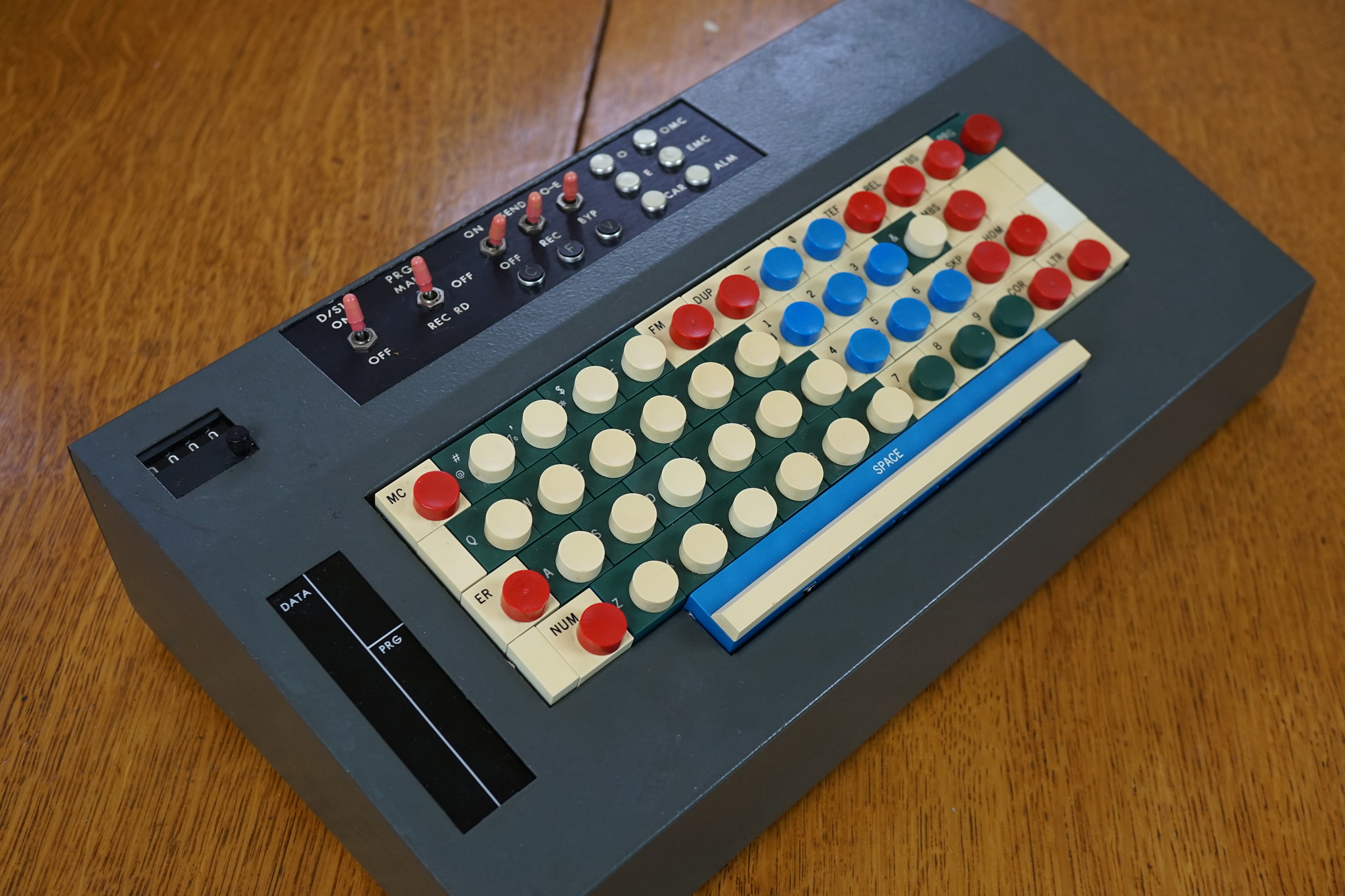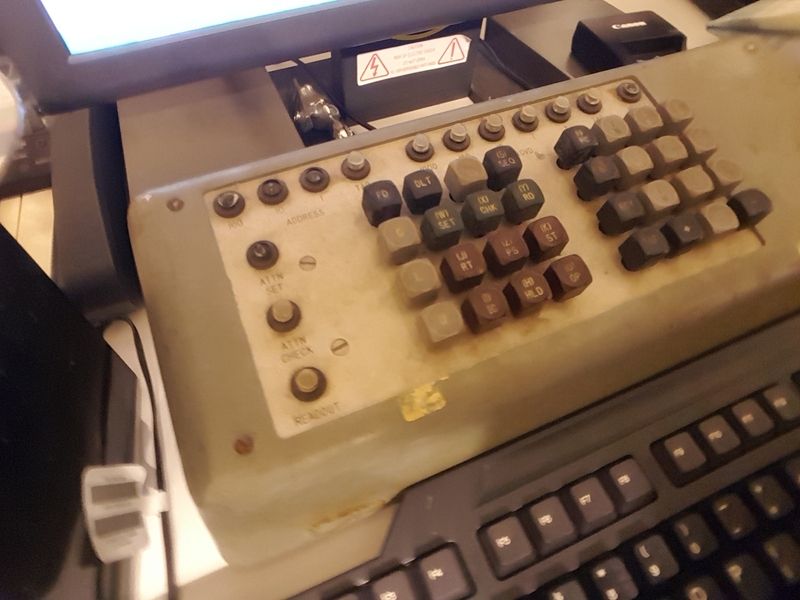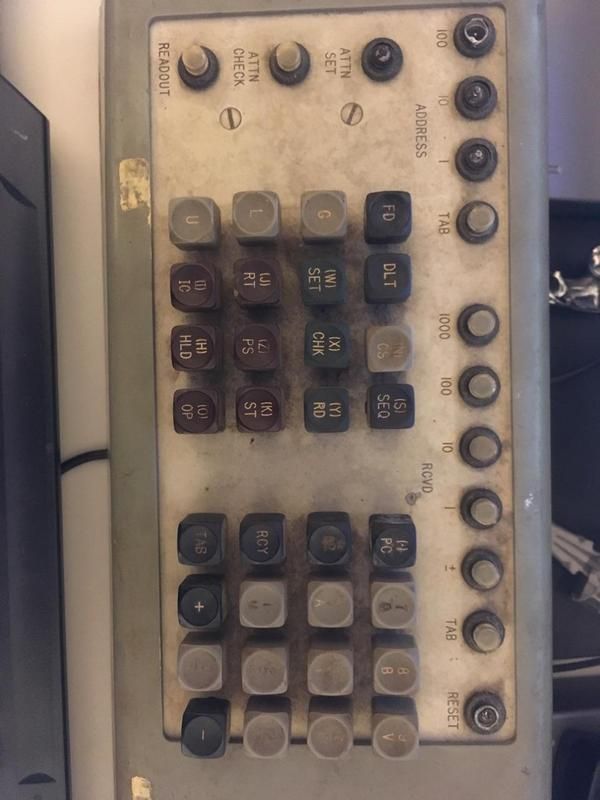—————————————————————————————————————————————————————————————————
I think early computer keyboards can be divided into four groups:
A. Detached teletype/punch console. Teletype or an alphanumeric key punch disconnected from a computer (“off-line”), used to punch cards or paper tape – or some other means of preparing data/program to eventually get into the computer. Tons of early 1940s/50s computers did this: ABC, Zuse Z3, Harvard Mark I, Manchester Mark 1, Univac with Unityper, etc.
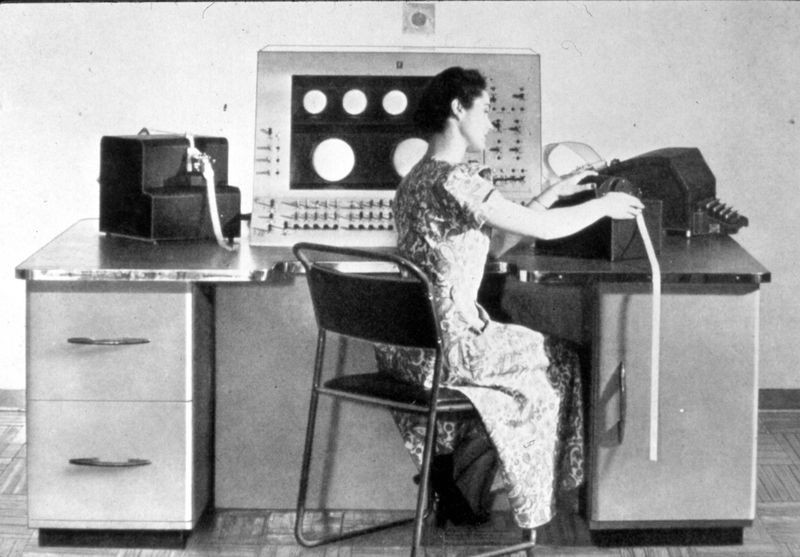
—————————————————————————————————————————————————————————————————
B. Built-in teletype/typewriter. A teletype or an electric typewriter built into a computer, used as an input, output, or input/output device (“on-line”). IBM System/360 from 1965 had that, and IBM 7030 Stretch from 1961 (this one had an early pre-release Selectric, many computers later used converted Selectric or Selectric I/Os). Univac from 1951 had that, too (but it also had a separate console). ERA 1103 from 1953, too?

—————————————————————————————————————————————————————————————————
C. Built-in typewriter-like console. A dedicated keyboard/console built into a computer that uses the technology of a teletype or an electric typewriter, but is customized in some way. 1962 LINC seems appropriate here: it had a keyboard made by Soroban that was solenoid-based and it seems very similar to an electric typewriter/teletype – but custom for this machine.
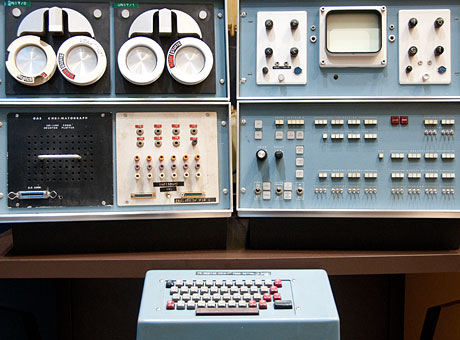
—————————————————————————————————————————————————————————————————
D. A dedicated, not typewriter-like keyboard, or a console built into a computer that has new tech for registering key presses. All of the keyboards with beam springs/reed switches will belong here, of course. Or this Cherry switch from 1959. But I’m curious what’s the first keyboard in this category – and whether it’s even possible to clearly delineate C from D (or B from C, for that matter). It seems like the Univac console from 1951 might be the first contender here? But I’m not sure exactly what is the switch here.

—————————————————————————————————————————————————————————————————
What do you think? Is this a good way to draw the gradient between typewriters and computers?
